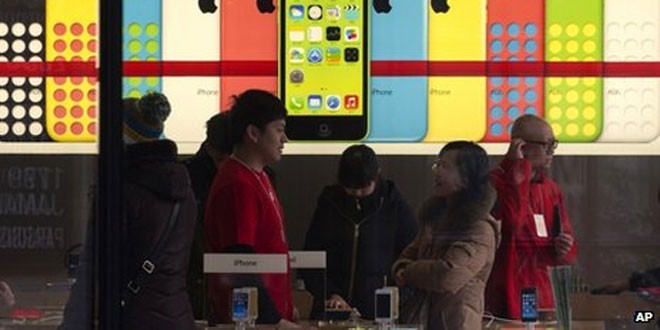Apple & China Mobile have signed a deal to bring Apple’s iPhone to China Mobile. China Mobile is the world’s largest carrier.
China Mobile currently has a subscriber base of 760 million which makes it the world’s largest it is also one of the three networks to be awarded 4G licenses earlier this month.
Apple has been looking to boost its sales in China, the world’s largest smartphone market, but has struggled amid growing competition from rivals.
The latest deal is expected to help it increase its market share.
“China is an extremely important market for Apple,” Tim Cook, Apple chief executive, said in a statement.
“Our partnership with China Mobile presents us the opportunity to bring iPhone to the customers of the world’s largest network.”
China is the world’s biggest smartphone-using country, with 1.2 billion users.
But Chinese sales of previous iPhone models have slumped recently, as consumers have turned to cheaper rival handsets from Samsung, and domestic Chinese developers.
China’s three bestselling smartphone makers are Samsung, Lenovo and Coolpad, according to a recent report by the consultants IDC.
Apple’s sales have also in been impacted by the fact that unlike in developed markets, many phone carriers in emerging markets do not subsidise smartphones.
That means that subscribers have to pay the full amount for the phone upfront, making Apple’s products relatively expensive for some buyers.
In an attempt to take on the low-cost rivals Apple unveiled a relatively cheaper version of the iPhone, the 5c, earlier this year.
“This is one of the biggest partnership announcements Apple has made in the past several years,” Manoj Menon, managing director of consulting firm Frost & Sullivan, told the BBC.
“It gives them access to more than 10% of the global mobile phone users. It is an incredible growth opportunity for Apple.”
However, he added that in order to fully realise the potential of the deal, Apple may need to introduce even more affordable phone models.
The iPhone 5s and 5c will be available to China Mobile subscribers from 17 January.
Source: BBC News
 Thfire.com Everyday news that matters
Thfire.com Everyday news that matters 
